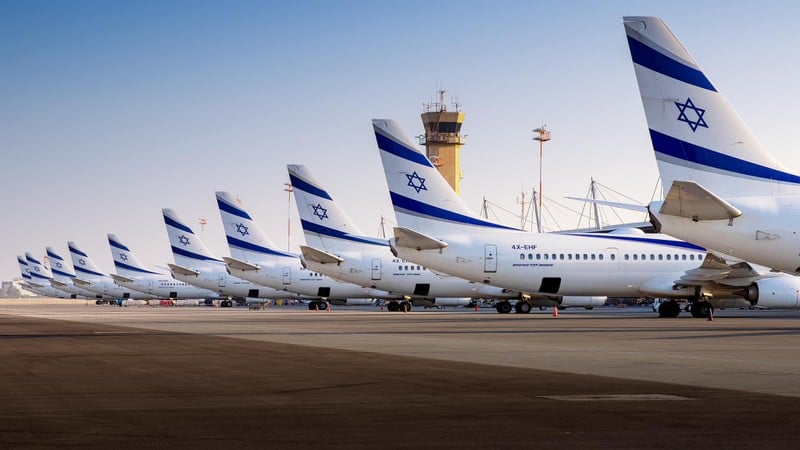As the strike action against Kenya Airways continues, government ministers have now waded into the fray and demanded the strike is called off immediately to avoid further damage to the country’s economy and the company in particular. The Kenya government continues to hold a sizeable share in the company while Dutch carrier KLM controls 26 percent of the shares.
Meanwhile, Kenya Airways has served formal notice of dismissal to the staff involved in what they call an ‘illegal strike’, which was initiated by a labour union against specific orders from the industrial court in Nairobi. It is understood that many staff are in any case on ‘contract terms’ with a limited tenure and that those contracts provide for termination of services in such cases.
Negotiations have continued however and are now also being attended by representatives of the Federation of Kenya Employers and the Central Organization of Trade Unions to seek a way out of the present dead end.
Notably, a senior official of the responsible union has all but admitted that their 130 percent wage increase demand ‘is unrealistic’, now demanding ‘ a more realistic’ figure between 34 and 68 percent wage increases for unionised staff. No information could be obtained by early Sunday morning from airline management on their reaction to the lowered demands, nor from governmental sources on their expectations on when the strike would end.
More information however was brought the attention of this column about the potentially devastating fallout of the strike for Kenya Airways’ African network traffic, where passengers from West Africa booked to connect via Nairobi are now seeking to travel on other airlines such as Emirates and Ethiopian Airlines to reach their destinations, while KQ passengers trying to return from the Middle, Near and Far East are said to be stranded at their destinations airports while waiting for KQ to make alternative arrangements for them to return home. Kenya Airways has over the past years build a solid passenger base across their African network and feeds many connecting passengers from West Africa in Nairobi to their flights to Dubai, Bangkok, Hong Kong and Guangzhou. The airline however is competing on these routes with Emirates in particular, which has aggressively rolled out their own Africa network, and Ethiopian Airlines, the erstwhile Pan African airline.
Scores of tourists are reportedly also getting stuck in Paris, London and Amsterdam, while trying to fly to Kenya for their booked vacations, as KLM flights too are now affected, in particular those code shared but operated by KQ. KLM is handled in the same terminal at the Nairobi airport as Kenya Airways and handling, besides flight operations is also said to be targeted by the union activists.
Senior tourism sources have declined so far to speak about the likely impact on the sector’s performance as a result of the strike but the financial losses and lesser visitor numbers are thought to be substantial enough to worry leading tourism industry figures, who are now also meeting and holding phone conferences in their own efforts towards damage limitation.
Kenya Airways is the dominant airline in the region and the present strike therefore has an impact on all regional countries, to which KQ distributes passengers connecting in Nairobi, while other airlines – this being a high season period – are also said to be struggling to accommodate KQ’s passengers due to lack of enough seats on their own flights.
Finally, some scuffles were reported between frustrated passengers ‘stuck’ at the airports in Kenya and airline officials and managers on duty and the presence of security personnel and operative has been stepped up sharply, according to comments phoned in from the airports in Nairobi and Mombasa.
Labour union senior staff was arrested in Nairobi last weekend after ignoring a court order preventing them from calling a strike at Kenya Airways on Friday and charged in a lower court for holding illegal meetings, while awaiting more charges to be brought against them. The country’s industrial court had specifically ordered the union and KQ to meet on Monday this week for a court supervised further round of negotiations, after the union demanded a staggering 130 percent wage increase for the unionised staff, while Kenya Airways’ management had offered 13 percent, upped from their previous offer of 8 percent. The industrial court had also prohibited any strike action by the union, which may cost them dearly yet if fined heavily as expected. It could not be confirmed at the time of filing this report if any shop stewards, i.e. union representatives working at the airline, were amongst those arrested.
It is understood from sources at Nairobi’s Jomo Kenyatta International Airport (morning or Saturday, 15th August) that only about half of the flights of the airline were operating although there is also feedback speaking of additional delays and of some departures being ‘consolidated’, i.e. cancelled with passengers being rebooked on later departures. The subsequent back log of passengers is expected to be dealt with by rebooking some of them on other airlines.
Travellers on Kenya Airways are requested to contact the airline through their website www.kenya-airways.com
Other union officials, said to have gone into hiding, were also wanted by police to face contempt of court and other charges while they continued to work underground towards making the strike a success and cripple operations completely, which has not happened as yet (morning of Saturday, 15th August). Allegations by the same union officials, that the airline’s flight operations were now unsafe, were rejected by management sources from the airline’s Embakasi head quarters. It was specifically pointed out in this regard that no flight was cleared for takeoff without all pre flight checks having been carried out and the mandatory crew complement on board.
The airline also categorically rejected union claims that staff were forced on gun point to report to work but confirmed that in some cases police escorts were provided to ensure the safe arrival of crews and other staff at their work place after fears had arisen that the unions’ agitators and ‘impromptu mobs’ would try to ambush them and prevent them by force to stay away from the airport.
KQ suffered a steep loss last year in the face of the global economic downturn but has so far avoided to lay off staff or make major cuts in benefits and pay – as has been common case with airlines based in the US for instance – but has now reportedly informed striking staff, that participants in the ‘illegal industrial action’ could face dismissal. Industry observers from the aviation sector in Nairobi have also added that the demand of 130 percent wage increases is ‘completely unrealistic’ and ‘bound to destroy the airline’, while another pointed out ‘if this succeeds all the other airlines too will be held at ransom by the unions’, then asking ‘do those ignorant union fellows want to finish the airlines in this country, what agenda do they have?’
The strike is dealing KQ another financial blow through loss of revenue, customer loyalty and the cost of rebooking passengers on other airlines and the share price on the Nairobi stock exchange is already reflecting investor’s concerns over the fallout of this strike action.
Meanwhile, coast hotel sources have also expressed their anger with the strike, as their guests now have problems finding a way from the Nairobi airport to Mombasa, leaving beds empty and unpaid for. Said one hotelier: ‘I cannot believe this. We are just starting to recover from the fallout of the recession in Europe and now this. Have the unions gone bonkers? Maybe some other local airlines can add more flights but still, passengers from Europe would have to buy fresh tickets with them. I personally hold the unions responsible for all this mess, and for sure they have a political agenda beyond just this strike’. Watch this space for updates on the situation as news become available from Nairobi.
WHAT TO TAKE AWAY FROM THIS ARTICLE:
- More information however was brought the attention of this column about the potentially devastating fallout of the strike for Kenya Airways' African network traffic, where passengers from West Africa booked to connect via Nairobi are now seeking to travel on other airlines such as Emirates and Ethiopian Airlines to reach their destinations, while KQ passengers trying to return from the Middle, Near and Far East are said to be stranded at their destinations airports while waiting for KQ to make alternative arrangements for them to return home.
- Kenya Airways is the dominant airline in the region and the present strike therefore has an impact on all regional countries, to which KQ distributes passengers connecting in Nairobi, while other airlines – this being a high season period – are also said to be struggling to accommodate KQ's passengers due to lack of enough seats on their own flights.
- Senior tourism sources have declined so far to speak about the likely impact on the sector's performance as a result of the strike but the financial losses and lesser visitor numbers are thought to be substantial enough to worry leading tourism industry figures, who are now also meeting and holding phone conferences in their own efforts towards damage limitation.






















